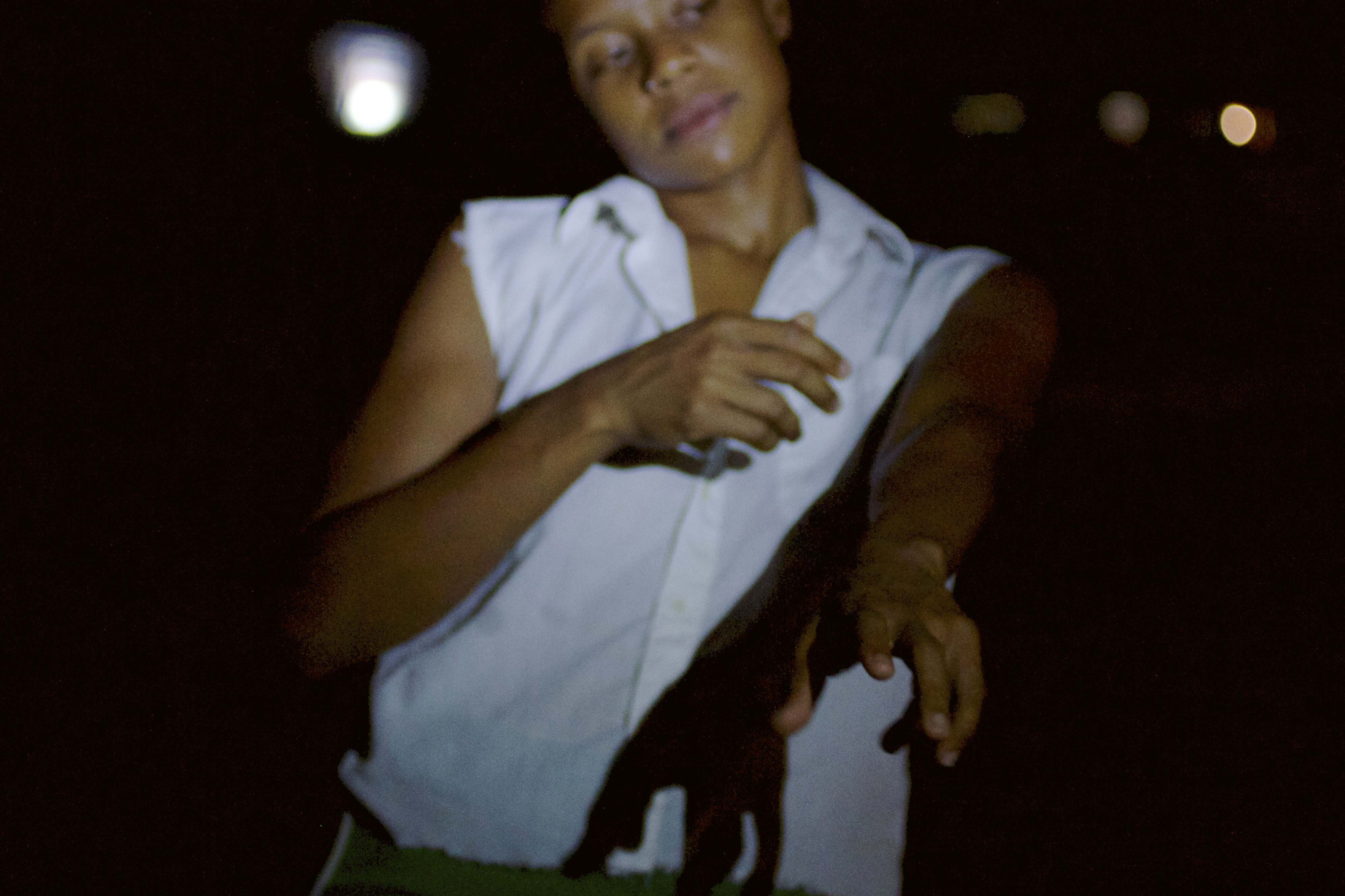Beatriz Santiago Muñoz
Beatriz Santiago Muñoz (b. 1972, San Juan, Puerto Rico) is an artist and filmmaker whose moving image work is research-driven. Muñoz explores the social and political interconnections inherent to the postcolonial Caribbean context while simultaneously drawing from anthropology, Boalian theater, expanded cinema, and a feminist practice. Muñoz has completed more than thirty films and videos since 2002, which have been widely exhibited internationally at Tate Modern, Guggenheim Museum, CCA Wattis Institute for Contemporary Arts, El Museo del Barrio, and Museum of Contemporary Art Puerto Rico, among other venues. Based in San Juan, Puerto Rico, Santiago Muñoz is co-founder of Beta-Local, an arts organization offering experiential education programs, and is director of Sessions, a seminar series anchored in the specific geography, emerging art practices, and social and political conditions of Puerto Rico.

El cuervo, la fosa, y la yegua, Beatriz Santiago Muñoz, Puerto Rico, digital, 16 min, 2021
Beatriz Santiago Muñoz brings together various forms of non-linear thinking and simultaneous temporalities that challenge traditional ways of reading with El cuervo, la fosa, y la yegua (The Raven, the Pit and the Mare). Taking as her model a method of Sanskrit poetry that tells two stories in the same text at the same time, Santiago Muñoz explores acts of simultaneous narration to juxtapose images and sounds from seemingly disconnected universes. For instance, a madeleine is both a pastry and an idea; language is historical and abstract; in the “historical now,” there is a plastic cup and a robotic arm at the bottom of the ocean. Each day, a mare visits a junkyard near an overgrown forest and tries to mate with a Corvette. A traditional Haitian proverb states: the snake can only be measured once it’s dead. Consider things you can’t see but know are real—the bottom of the Puerto Rico Trench, the Marassa Jumeaux, our attachments to past orders.

La cabeza mató a todos, Beatriz Santiago Muñoz, Puerto Rico, digital, 8 min, 2014
Instructions to destroy the war apparatus with a spell.
–Beatriz Santiago Muñoz
La cabeza mató a todos (The Head that Killed Everyone) is a mixing of indigenous mythologies with present-day characters, geographies, and culture in Puerto Rico. The title refers to how a shooting star was (in local mythology) interpreted as a head without a body, crossing the sky, signaling the arrival of chaos and destruction. The actor in the video, Michelle Nonó, is in touch with native plants—she’s a medicinal botanist but also a cultural activist. She hosts cultural events in her house, in a primarily Afro-Caribbean and post-industrial area called Carolina.
–Kadist
Co-presented with Three Fold. Image credits: all artworks, stills, and portraits courtesy of the artist © Beatriz Santiago Muñoz. Special thanks to José López Serra.
View next: Cecilia Vicuña, as part of Media City Film Festival: Spotlight Series